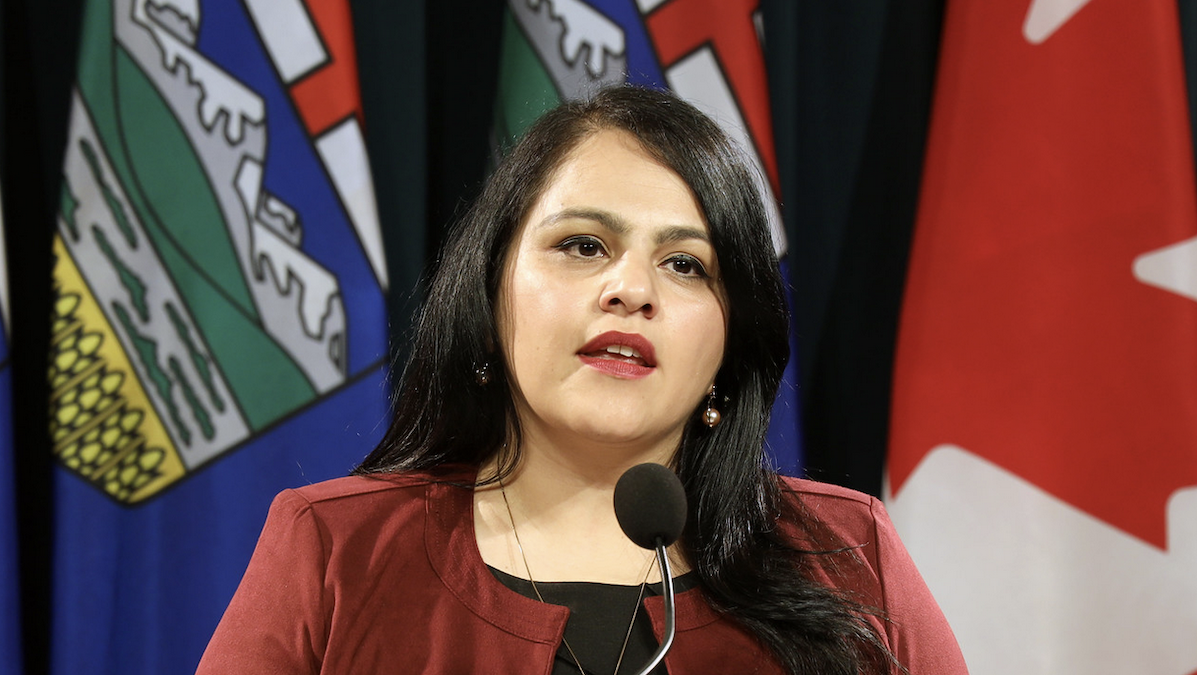United Conservative Party leadership candidate Rajan Sawhney yesterday issued a statement saying “it is a significant problem” that the new chief of the Alberta Human Rights Commission made “pejorative comments about Islam” in a 2009 book review published by a right-wing website.
In her statement, Sawhney called for further investigation of the comments made by May, who the UPC appointed to the job on Thursday, despite news and commentary about his 2009 book review.
This hardly seems necessary since his review can still easily be found online at the C2C Journal website, and because May has publicly admitted that he wrote it.
Moreover, she seems to suggest the uproar about May’s appointment may indicate that media reports are not to be trusted. Whatever flaws Alberta’s media may exhibit, the few journalists and commentators who covered this story can plead not guilty to that charge for the simple reason that May has confirmed the accuracy of everything he is reported to have said.
Still, despite the flaws in her argument, this is an important development because Sawhney is the first and so far the only UCP leadership candidate to speak out against May’s appointment, even if she is a long shot to win the leadership race.
She has set the bar – albeit a rather low one – for the other candidates to lead the UCP to live up to. Or not to live up to, in which case no UCP supporter should complain if this remains an issue through the leadership race and into the election campaign that follows.
The former transportation minister said she had taken the time to read the review herself and found that the author largely accepted an interpretation of Islam “which takes a highly controversial and negative view of the faith of tens or even hundreds of thousands of Albertans.”
“These comments have created considerable and understandable hurt within the Muslim community, but also among all Albertans who value our pluralistic society,” she said, noting that “it is a significant problem when the person who expressed those unacceptable views is responsible for adjudicating human rights issues.”
This is an important point because even though May says he has changed his opinion of Islam since he wrote the review 13 years ago, that does not alter the natural perceptions of his views as bound to bring the proceedings of the commission into disrepute.
It would have behooved the UCP Government to remember, as Lord Chief Justice Hewart famously said in 1924, it “is of fundamental importance that justice should not only be done, but should manifestly and undoubtedly be seen to be done.”
As Sawhney observed yesterday, “no person of Muslim faith would have confidence that they are being treated neutrally by the Human Rights Commission if the Chair has pre-existing and negative views of that person’s faith.”
“This allegation of bias is also a reminder that the vetting of prospective candidates for sensitive and important jobs in government must be thorough,” she added, quite rightly.
Mind you, Sawhney was in cabinet when May was first appointed to the commission in a lesser role, so she should have some first-hand insight into how he was chosen the first time. Perhaps Cabinet simply accepted the minister’s recommendation without reflection or question.
Whatever vetting there was of May, it was disgracefully lax. It would almost be better if no checks had been made at all, which, while negligent would at least not have raised the additional possibility of malice in his selection.



